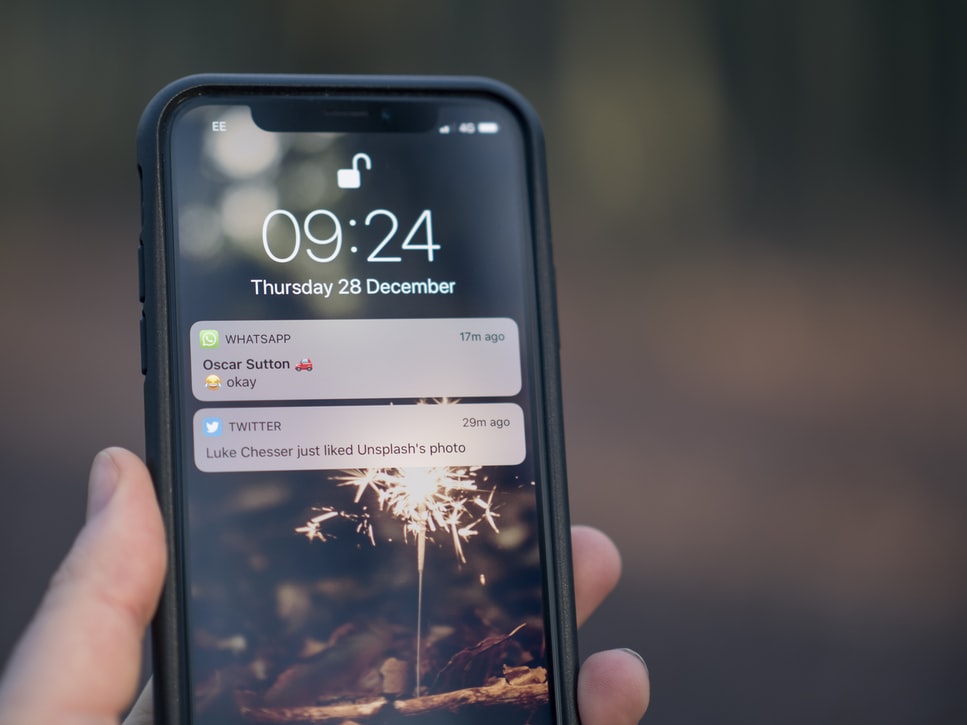“There’s an app for that” was the claim Apple made during its 2009 marketing for the iPhone 3G.
In one ad, the narrator asked: “Want to check snow conditions on the mountain?… Want to check how many calories in your lunch?…. Want to check exactly where you parked the car?”
The answer, of course, was: “there’s an app for that”.
In the hype surrounding this new piece of technology, every business and organization began launching their own mobile apps. Some were great, offering valuable and useful functionality, others were not.
If you think back to the early 2010s, your phone was likely full of apps you downloaded, used a handful of times, and then never opened again. It may still even be the case today.
Those apps that you neglected and starved of attention probably didn’t need to be apps in the first place.
The businesses may have been better investing in a cheaper, easier, and quicker to develop a mobile website.
Reasons to build a mobile website
If you need your customers to interact with your business from their smartphone, then you will most likely want to develop a website that is mobile “responsive”, meaning it adapts to different screen sizes including mobile phones.
Mobile-friendly websites offer several benefits over an app, including:
- They can be developed quicker and then modified more easily.
- Mobile websites can be accessed on any device (including desktop and laptop computers) without the need to download anything, giving you a much larger potential audience.
- They can be found more easily since a Google search can’t show content from inside an app in its results, meaning you can’t use your app for your content marketing activities.
- Users can share a page from a mobile website with friends without the receiver having to download anything.
- Mobile websites cost less to develop and maintain
When you may want an app
 While a mobile website will suffice in most circumstances, an app may make more sense in certain circumstances.
While a mobile website will suffice in most circumstances, an app may make more sense in certain circumstances.
1. Fullscreen
If you want your customers to be able to access your content in full screen, then a mobile app may be necessary.
Accessing a website through a mobile browser usually means you have the address bar at the top, and on Android devices, the system buttons will be visible at the bottom.
Apps that are used for entertainment are typically the ones that need access to full-screen functionality.
After all, you don’t want to see your notification bar while you are watching a movie or playing a game.
Good examples of this are the PokerStars and Amazon Prime Video apps, both of which create a better experience for their users by removing distractions.
2. Push notifications
If you want to send your users regular push notifications, then an app is the easiest way to do it.
Communication apps like Gmail and WhatsApp, shopping apps like Amazon, and even the marketing tool Mailchimp are good examples
Just remember to not get overzealous with your push notifications, as users are likely to uninstall your app if they feel like they are getting spammed.
3. Offline access
If you want your users to have access to your information and functionality when they are not connected to the internet, then you’ll need an app.
Mobile websites can be cached in a mobile browser, but users won’t usually be able to navigate to other pages.
Offline access can only work if the information is stored locally on the device, or if the user doesn’t need to access online account information.
For example, Amazon’s shopping app lets you access cached order information offline, but won’t let you search for products since the app needs to communicate with the server.
Offline access works best for providing reference information like a dictionary, calculators that don’t need updated information from the internet and games.
4. Personalization and regular use
Apps are useful when your users are going to be accessing your service on a regular basis.
For example, online banking apps where the user logs in using their fingerprint for ease, or a news app where they can set which types of stories are of interest to them.
In both of these cases, mobile websites would work (and they often exist in addition to an app), but they’re typically less convenient to access on a regular basis.
Shopping apps and media streaming services use the personalization elements to offer you recommendations for new content to watch or products to buy.
While a mobile website for these would be possible, but since they are likely to be used regularly an app stops the user from having to sign back in regularly.
5. Accessing native features
Modern smartphones are packed with all kinds of sensors and transmitters, including a compass, accelerometer, ambient light sensor, gyroscope, GPS, and barometer.
For developers to get access to the data generated by these components, they must use a native mobile app as most of this information isn’t available through the web browser.
Navigation apps need access to most of this information to give you turn-by-turn directions and provide you with information like your speed and direction of travel.
Google Maps even uses the ambient light sensor to change from light to dark mode if you drive into a tunnel so that you don’t get dazzled.
Games that require you to tilt the phone to control what happens on screen require access to the gyroscope.
Even being able to access the camera usually requires an app if you want to be able to do anything other than just take and upload a photo.
For example, tools like the Google Measure app use sensor information and your camera to let you measure real-world objects in augmented reality.
In summary
As a business, you need to weigh up what your users and customers will be doing on their mobile devices. In most circumstances, a mobile website will be the best option.
Even when you do choose to go with a mobile app, you’ll still likely need to have a landing page to provide information to potential customers that haven’t yet downloaded it.

The Ideas Plus Business Editorial Team is led by Adeyemi Adetilewa, a Digital Marketing Consultant. If you’re interested in writing for Ideas Plus Business, read this article first.


